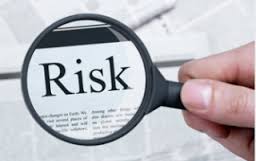Conflict of Interest Issues – A Significant Risk
 In the risk mitigation business, we often focus on legal risks, such as anti-corruption, sanctions, export controls, antitrust and AML. As compliance programs mature, and the CCOs focus on proactive strategies, one key issue is conflict of interest.
In the risk mitigation business, we often focus on legal risks, such as anti-corruption, sanctions, export controls, antitrust and AML. As compliance programs mature, and the CCOs focus on proactive strategies, one key issue is conflict of interest.
My experience with conflict of interest issues has confirmed that such conflicts often mask more serious compliance issues relating to fraud and even legal violations. As such, every CCO should consider making conflict of interest issues a higher priority in the scope of risk ranking and allocation of resources.
Interestingly, conflict of interest issues are significant at every level of the company. Starting with the board of directors, an effective board has to be transparent with regard to potential conflict issues and address them on an ongoing basis. Board decisions that either suffer from actual conflicts can jeopardize the board’s adherence to its fiduciary duties and create real legal risks. Even the appearance of a conflict can raise real issues and transparency becomes even more important in these contexts.
This same level of risk can undermine the integrity of senior management. When senior executives fail to address real and significant conflicts, the integrity and overall leadership trust factor can deteriorate. A CCO has to be willing to take on these issues, even when it is difficult to confront senior executives. A CCO who avoids these issues can threaten the company’s culture of trust and integrity.
Looking in the organization, conflict of interest risks can be significant, especially in the contracting area where managers can easily arrange for work with related family members or closely-connected friends. Sometimes these arrangements can morph into more significant risks – if a manager is willing to pass business to his family or friends, the same manager may be willing to cut corners on legal compliance issues in order to benefit the family member or friend. A simple fraud scheme can easily turn into a set of legal violations that may threaten the company’s overall operations.
Companies are right to focus on potential fraud risks as an indicator of greater risks beyond theft of company finds. Once a company losses control over its financial operations, the company creates greater risks from legal violations. Bribery requires unauthorized access to money and circumventing controls is the key to financing a bribery scheme.
A conflict of interest issue can be an indicator of potential fraud and even greater legal risks. CCOs have to devote more time and attention to these issues. Conflict of interest enforcement cannot be dependent on voluntary disclosures by individual directors,  executives, managers and employees. Instead, CCOs have to design conflict of interest monitoring and audits surrounding company contracting and spending issues. This sounds burdensome and difficult but in reality depends on careful risk analysis, controls and auditing of conflict of interest certifications required from managers and employees.
executives, managers and employees. Instead, CCOs have to design conflict of interest monitoring and audits surrounding company contracting and spending issues. This sounds burdensome and difficult but in reality depends on careful risk analysis, controls and auditing of conflict of interest certifications required from managers and employees.
CCOs have to devote time and attention to training at every level on conflict of interest issues. As employees learn more about the issue, they are often the key information source of potential conflicts.
Employees are often comfortable raising such concerns about their bosses and others in the company, and will rely on hotlines and other reporting mechanisms to raise such issues. When an employee sees his or her boss engaging in questionable behavior, they will often report their supervisor for such questionable activities.















